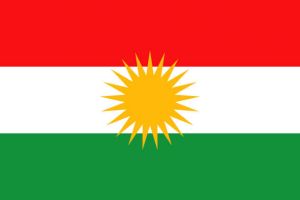Language/Southern-kurdish/Grammar/Negation
Hi Southern Kurdish learners! 😊
In this lesson, we are going to focus on negation in Southern Kurdish. It's an essential aspect of any language, allowing us to express negative thoughts, actions, or events. To improve your understanding, we'll explore different types of negation and common usage in everyday conversation. Don't forget, one of the most efficient ways to improve your Southern Kurdish skills is to practice with native speakers. Find native speakers and ask them any questions!
Negation Overview[edit | edit source]
Negation refers to the grammatical expression of negating or denying something. In Southern Kurdish, negation can be expressed in several ways, including negation particles, negative prefixes, and additional words. Let's briefly discuss the most common examples of negative particles and their usage in Southern Kurdish:
| Particle | Pronunciation | English | Example |
|---|---|---|---|
| New | /nɛw/ | not | کەڵاتەی نیویە (Kelatey niwe) - it's not a book. |
| Na | /nɑ/ | no | ناتوانێ (Na tawane) - I can't. |
| Mên | /meːn/ | no | مێندە (Meende) - no. |
There are more particles in Southern Kurdish, but these are the most commonly used. Additionally, it's essential to pay close attention to the word order in negative sentences.
Negative Prefixes[edit | edit source]
Negative prefixes are morphemes (grammatical units) that come at the beginning of a word and negate meaning. Southern Kurdish has negative prefixes, which means we can form negative words from existing ones. Let's explore some of the most common negative prefixes along with some examples:
| Prefix | Pronunciation | English | Example |
|---|---|---|---|
| Bi- | /bɪ/ | un-, non- | بیشەیرێ (Bisheere) - impolite, rude. |
| Na- | /nɑ/ | un-, dis-, not | ناکچە (Nakche) - unfair. |
It's essential to note that adding negative prefixes in Southern Kurdish is not always straightforward, and it may result in a change of meaning. Therefore, when encountering unfamiliar words that contain negative prefixes, make sure to check with a native speaker.
Double Negatives[edit | edit source]
A double negative is a construction that uses two negative particles, making the statement and overly negative. While in some languages, using double negation is considered incorrect, in Southern Kurdish, it's a common way to emphasize negation, especially in colloquial expressions:
| Southern Kurdish | English |
|---|---|
| نیوم نیویە | I don't have anything. |
| نی دەتوانم نەکردەوە | I can't do anything. |
Negation with Nouns[edit | edit source]
Negating nouns is similar to negating verbs in Southern Kurdish, mainly because the same particles are used. When negating a noun, we use the “nu” particle, which frequently occurs at the end of the word.
| Southern Kurdish | Pronunciation | English |
|---|---|---|
| خوشترین نەکابوو (خوشترین+نو) | /xoʃtərɪn nɛkabuː/ | not the happiest. |
| شوێنەکان وەرکرای نەکرد (وەرکرای+نو+نەکرد) | /ʃewɛnekɑːn wɛrkraiii nɛkirdə/ | they didn't stop the places. |
Dialogue[edit | edit source]
A dialogue that takes place between two friends, Mary and Alex:
- Mary: مێندە، خۆشترین فلمەکەما دەست نەکرد (meende, khôshterîn flmakkema dest nêkı̂rd) - No, we didn't watch my favorite movie.
- Alex: ناتوانێ، بووم زۆر بەرچاو دەیخیتی (na tawane, bum zor bârchaw dêykhiti) - I couldn't; I was too busy.

